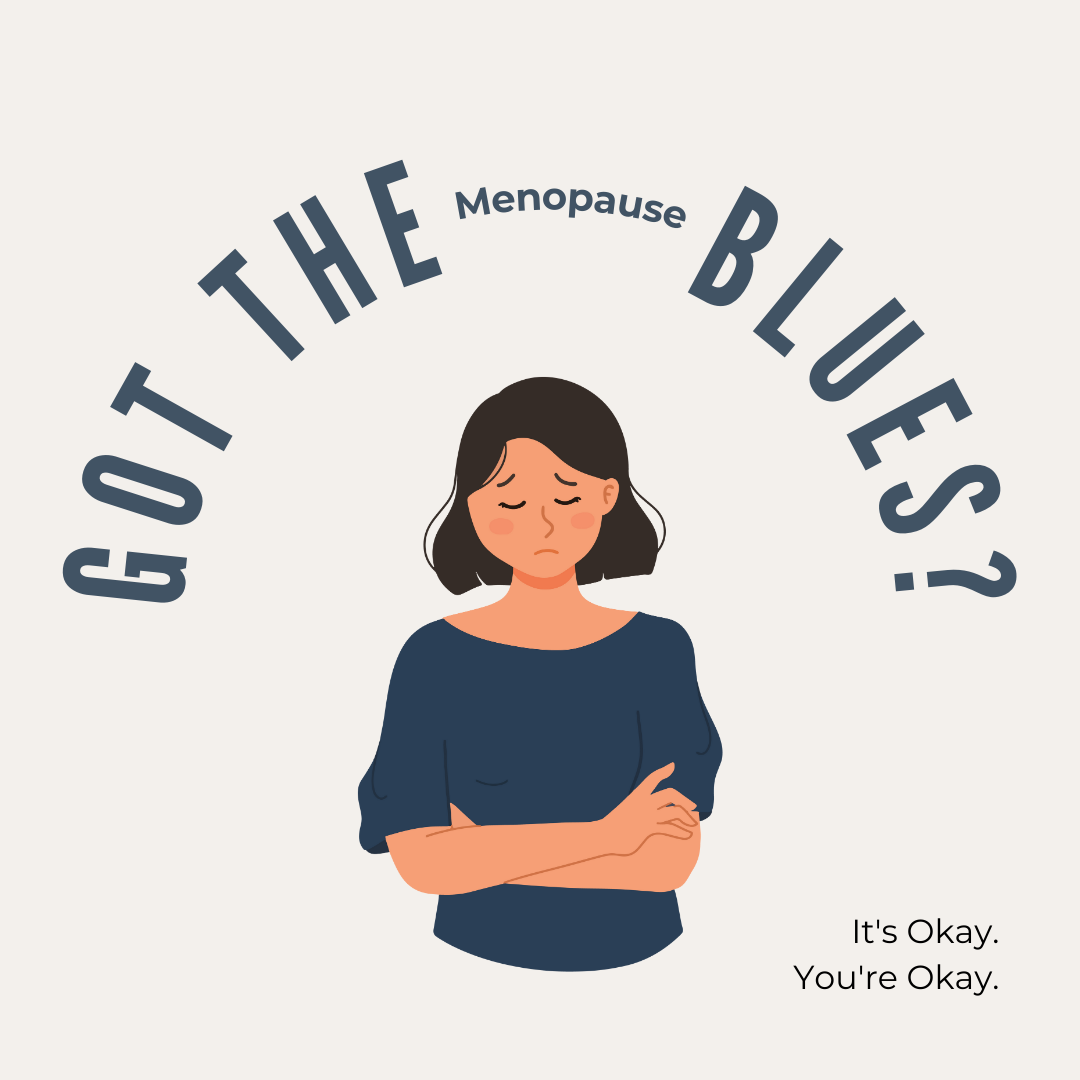What I Learned From Dry January
Mike’s Favorite
blog posts
What Is Relationship “Popcorning” And Am I Guilty?
The Fifty-First Official Friday Night BeerBlog
The Seventy-Fourth Official Friday Night BeerBlog
What’s With The Friday Night BeerBlog (FNBB) Anyway?
The Seventy-Second Official Friday Night BeerBlog
Married 26 Years Last Month – The McShane Secrets To A Successful (ish) Marriage.
Lesley’s Favorite
blog posts
You’re a Savage. Classy. Bougie. Ratchet.
The Eighty-Third Official Friday Night BeerBlog
The Eighth Official Friday Night BeerBlog
I Can See Clearly Now The Dirt Is Gone
The Twenty-Third Official Friday Night BeerBlog
4 Coping Mechanisms For The Menopause Blues
June 14, 2023
There are so many peri-menopause and menopause symptoms that I could pick on, but I want to touch on one that I have been dealing with specifically over the last month or so. And that is the “menopause blues”. I stop short of calling it depression for me. But if you would describe your blues as more of a depression, I encourage you to seek out professional help. They will be able to diagnose and have a program put together for you with therapy and perhaps medication.
But if you are like me and are just suffering with the menopause blues, I have 4 coping mechanisms I want to share that I am currently using.
Call Out The Menopause Blues
Call it what it is. If you start feeling abnormal feelings of sadness or being angry and you are peri-menopause and menopause age, realize that it is a good possibility that your hormone fluctuations are the cause. Just knowing can be a great relief. A lot of times if we are aware what is going on, we can take action or we can talk ourselves through it.
I’ve done that a lot. When a wave of sadness comes on, I tell myself everything is the same, but that I am thinking about and reacting to them differently. Tell yourself that it will pass. My blues go in waves and do eventually pass, but maybe yours do not. Again, I encourage you to talk to your doctor if that is the case.
Create Your Menopause Community
Talk about it. The time of hiding our peri-menopause and menopause is over. Everybody is talking about it, so you should, too. And don’t just talk about it with your partner, but also but with your family, with friends, both male and female, and with your co-workers. The more we talk about it and normalize it, the more support that we will get when our symptoms strike.
If you are sad, talk about it. Allow people to remind you that it’s okay – everything is fine. To give you hugs if you need them. When we educate other people to what we are going through, it allows them to become more compassionate toward us.
Connecting with others who are experiencing or have experienced similar challenges can be incredibly valuable. It can provide a sense of belonging, understanding, and the opportunity to share coping strategies.
Move Your Body
Move your body. In her early teaching career, my mother was a gym teacher and she used to tell me how she would not let the girls being on their period and feeling bad an excuse not to participate. She was a big supporter that exercise will make you feel better. And the same is true in peri-menoause and menopause.
Exercise is a great mood enhancer. Regular exercise releases endorphins, also known as “feel-good” hormones, which can boost your mood and reduce feelings of depression. It also acts as a natural stress reliever by reducing levels of stress hormones, such as cortisol, and promoting relaxation.
So if you start to feel a downward mood coming on, put on your shoes and go.
Feed Your Body
Focus on good nutrition to help balance your mood. Certain nutrients, such as omega-3 fatty acids, B vitamins, and magnesium, are absolutely essential for maintaining optimal brain health and your neurotransmitter function. These nutrients can influence mood and may help alleviate symptoms of the blues.
This includes foods such as fatty fish (salmon or trout), leafy greens (spinach, kale, cabbage, or broccoli), whole grains (quinoa or brown rice), and legumes (black, kidney, pinto beans), in your diet can support a balanced mood during menopause. But if you can’t get enough in your food, consider taking supplements.
BONUS: Take Your Menopause Self-Care To The Next Level
Take your self-care to the next level. You specifically need to be all in on taking care of yourself mentally and physically. I encourage a bedtime routine in order to get to sleep and then have restful sleep. Make sure to drink water all day. Be working to continually flush all of the toxins out of your body. I encourage you to meditate when you can. Practice deep breathing and feeling gratitude. Give yourself big heaps of compassion.
Every woman’s experience with menopause, the blues or even depression, is unique. What works for one woman may not work for another, so it’s crucial to find an approach that suits your individual needs. Remember, you’re not alone in this journey, and seeking help is an important step towards finding relief and reclaiming your well-being.

Leave a Reply Cancel reply
Redesigning Midlife Weekly Update
©lesley l mcshane 2023 | Designed by ale merino
apple podcast
spotify
google podcast
Listen to the podcast
shop
HOME
about
podcast
MIM LIVE
blog
let's be friends
get
around
Get in the know with the
lesley
l mcshane